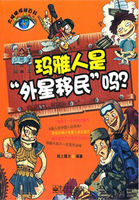"I wish I could be so sure," said Meggie glumly. "Have you been on about fame and glory, Justine?" her grandmother demanded. "They enter the picture," said Justine, putting the old brown kitchen teapot on the table defiantly and sitting down in a hurry. "Now don't complain, Mum; I'm not making tea in a silver pot for the kitchen and that's final."
"The teapot is perfectly appropriate." Meggie smiled. "Oh, that's good! There's nothing like a nice cup of tea," sighed Fee, sipping. "Justine, why do you persist in putting things to your mother so badly? You know it isn't a question of fame and fortune. It's a question of self, isn't it?"
"Self, Nanna?"
"Of course. Self. Acting is what you feel you were meant to do, isn't that right?"
"Yes."
"Then why couldn't you have explained it so to your mother? Why upset her with a lot of flippant nonsense?"
Justine shrugged, drank her tea down and pushed the empty cup toward her mother for more. "Dunno," she said.
"I-dont-know," Fee corrected. "You'll articulate properly on the stage, I trust. But self is why you want to be an actress, isn't it?" "I suppose so," answered Justine reluctantly. "Oh, that stubborn, pigheaded Cleary pride! It will be your downfall, too, Justine, unless you learn to rule it. That stupid fear of being laughed at, or held up to some sort of ridicule. Though why you think your mother would be so cruel I don't know." She tapped Justine on the back of her hand. "Give a little, Justine; cooperate."
But Justine shook her head and said, "I can't."
Fee sighed. "Well, for what earthly good it will do you, child, you have my blessing on your enterprise."
"Ta, Nanna, I appreciate it."
"Then kindly show your appreciation in a concrete fashion by finding your uncle Frank and telling him there's tea in the kitchen, please." Justine went off, and Meggie stared at Fee.
"Mum, you're amazing, you really are."
Fee smiled. "Well, you have to admit I never tried to tell any of my children what to do."
"No, you never did," said Meggie tenderly. "We did appreciate it, too."
The first thing Justine did when she arrived back in Sydney was begin to have her freckles removed. Not a quick process, unfortunately; she had so many it would take about twelve months, and then she would have to stay out of the sun for the rest of her life, or they would come back. The second thing she did was to find herself an apartment, no mean feat in Sydney at that time, when people built private homes and regarded living en masse in buildings as anathema. But eventually she found a two-room fiat in Neutral Bay, in one of the huge old waterside Victorian mansions which had fallen on hard times and been made over into dingy semi-apartments. The rent was five pounds ten shillings a week, outrageous considering that the bathroom and kitchen were communal, shared by all the tenants: However, Justine was quite satisfied. Though she had been well trained domestically, she had few homemaker instincts.
Living in Bothwell Gardens was more fascinating than her acting apprenticeship at the Culloden, where life seemed to consist in skulking behind scenery and watching other people rehearse, getting an occasional walk-on, memorizing masses of Shakespeare, Shaw and Sheridan. Including Justine's, Bothwell Gardens had six flats, plus Mrs. Devine the landlady. Mrs. Devine was a sixty-five-year-old Londoner with a doleful sniff, protruding eyes and a great contempt for Australia and Australians, though she wasn't above robbing them. Her chief concern in life seemed to be how much gas and electricity cost, and her chief weakness was Justine's next-door neighbor, a young Englishman who exploited his nationality cheerfully.
"I don't mind giving the old duck an occasional tickle while we reminisce," he told Justine. "Keeps her off my back, you know. You girls aren't allowed to run electric radiators even in winter, but I was given one and I'm allowed to run it all summer as well if I feel like it."
"Pig," said Justine dispassionately.
His name was Peter Wilkins, and he was a travelingsalesman. "Come in and I'll make you a nice cuppa sometime," he called after her, rather taken with those pale, intriguing eyes. Justine did, careful not to choose a time when Mrs. Devine was lurking jealously about, and got quite used to fighting Peter off. The years of riding and working on Drogheda had endowed her with considerable strength, and she was untroubled by shibboleths like hitting below the belt. "God damn you, Justine!" gasped Peter, wiping the tears of pain from his eyes. "Give in, girl! You've got to lose it sometime, you know! This isn't Victorian England, you aren't expected to save it for marriage." "I have no intention of saving it for marriage," she answered, adjusting her dress. "I'm just not sure who's going to get the honor, that's all." "You're nothing to write home about!" he snapped nastily; she had really hurt.
"No, that I'm not. Sticks and stones, Pete. You can't hurt me with words. And there are plenty of men who will shag anything if it's a virgin." "Plenty of women, too! Watch the front flat."
"Oh, I do, I do," said Justine.
The two girls in the front flat were lesbians, and had hailed Justine's advent gleefully until they realized she not only wasn't interested, she wasn't even intrigued. At first she wasn't quite sure what they were hinting at, but after they spelled it out baldly she shrugged her shoulders, unimpressed. Thus after a period of adjustment she became their sounding board, their neutral confidante, their port in all storms; she bailed Billie out of jail, took Bobbie to the Mater hospital to have her stomach pumped out after a particularly bad quarrel with Billie, refused to take sides with either of them when Pat, Also, Georgie and Ronnie hove in turns on the horizon. It did seem a very insecure kind of emotional life, she thought. Men were bad enough, but at least they had the spice of intrinsic difference.















